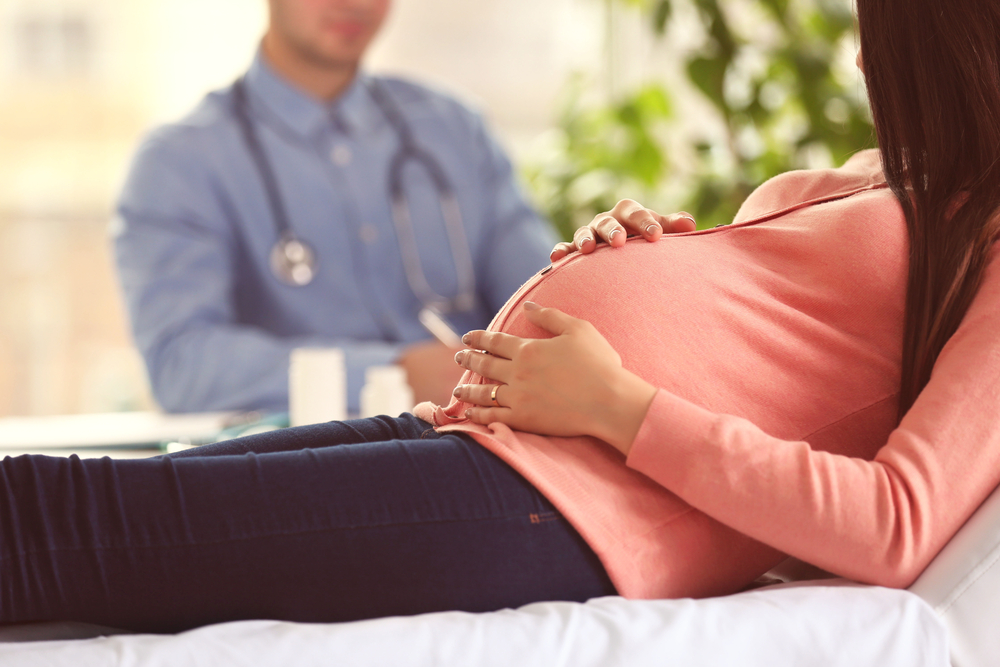Here’S Why Expectant Mothers Gain Weight Rapidly
Here’s why expectant mothers gain weight rapidly
Weight gain is the body’s natural response during pregnancy so that both, the mother and baby can well-prepared for a laborious experience like childbirth. However, putting on those pregnancy pounds can often be an unnerving experience for most expectant mothers. The good news is that there’s nothing to worry about in the long run! On an average, women lose 11 pounds immediately after they deliver from the 25 to 40 pounds they have gained during the pregnancy.

Body fluid
The body is mostly made up of fluids that keeps the organs hydrated so that they can function properly. When a woman is pregnant, the amount of fluids in her body automatically rise to accommodate the changing needs. The body approximately houses around 4 pounds of extra fluid during pregnancy. Increased fluid in the body ensures that the nutrient and blood flow to the fetus is consistent and interrupted. When the fluid rises to an excessive amount, it stores itself in the tissues of the body. By the time the woman is in her last trimester, the extra fluid in the body might cause swollen legs and feet.
Blood
The mother’s heart has to work twice as hard as it’s pumping oxygen-rich blood for the baby as well. Naturally, the blood levels in the body increase. Usually, in pregnant women, the blood volume increases by up to 4 pounds to keep up with the growing needs of the fetus.
Uterus
The uterus gets heavier by around 2 pounds as it grows, stretches, and thickens to comfortably house the baby.
Placenta
A new organ known as the placenta is created by the woman’s body to nourish the fetus for the next six months. Placenta alone weighs 1.5 pounds.
Amniotic sac
The uterus is filled with the amniotic fluid that helps the baby to float. This fluid accounts for 2 pounds of the total gained weight. The amniotic fluid is made of electrolytes, water, protein, and other nutrients to encourage the fetus’ growth. Moreover, this amniotic sac acts like a mother’s embrace to keep the baby warm and safe from bumping against any organ.
Breasts
The breasts carry an extra 2 pounds as the pregnancy hormones, human chorionic gonadotropin (hCG) and progesterone activate the milk ducts, causing the breast tissues to swell. Although they don’t produce milk right away. It is only after the delivery when the hormone levels dramatically fall and oxytocin is released that helps stimulate the milk ducts for breastfeeding.
Storage
As the delivery date approaches, the body begins to store more fat, protein, and additional nutrients in the body, especially around the hips and thighs. This storage will help the mother produce breast milk essential for the baby’s growth, particularly in the first six months. Moreover, breastfeeding helps burn calories, so a mother will gradually lose a significant amount of weight in the few months after the baby’s birth.
It is important that an expectant mother eat well and healthy during pregnancy. If the diet provides inadequate nutritional, it can lead to a low weight gain that can cause developmental problems in the baby. Likewise, women with insufficient weight gain might have to weather a premature birth. Stress, extreme mood swings, and pre-eclampsia are other complications that could occur due to low weight gain. Expectant mothers should also ensure to avoid junk. Craving junk food might be natural, however, it lacks the nutritional quality a fetus requires to grow. If one isn’t sure about their food options, they should consult a dietician to know more.
The low weight gain could also because of an untreated urinary tract infection (UTI), high blood pressure, Lupus, or Hughes syndrome.




